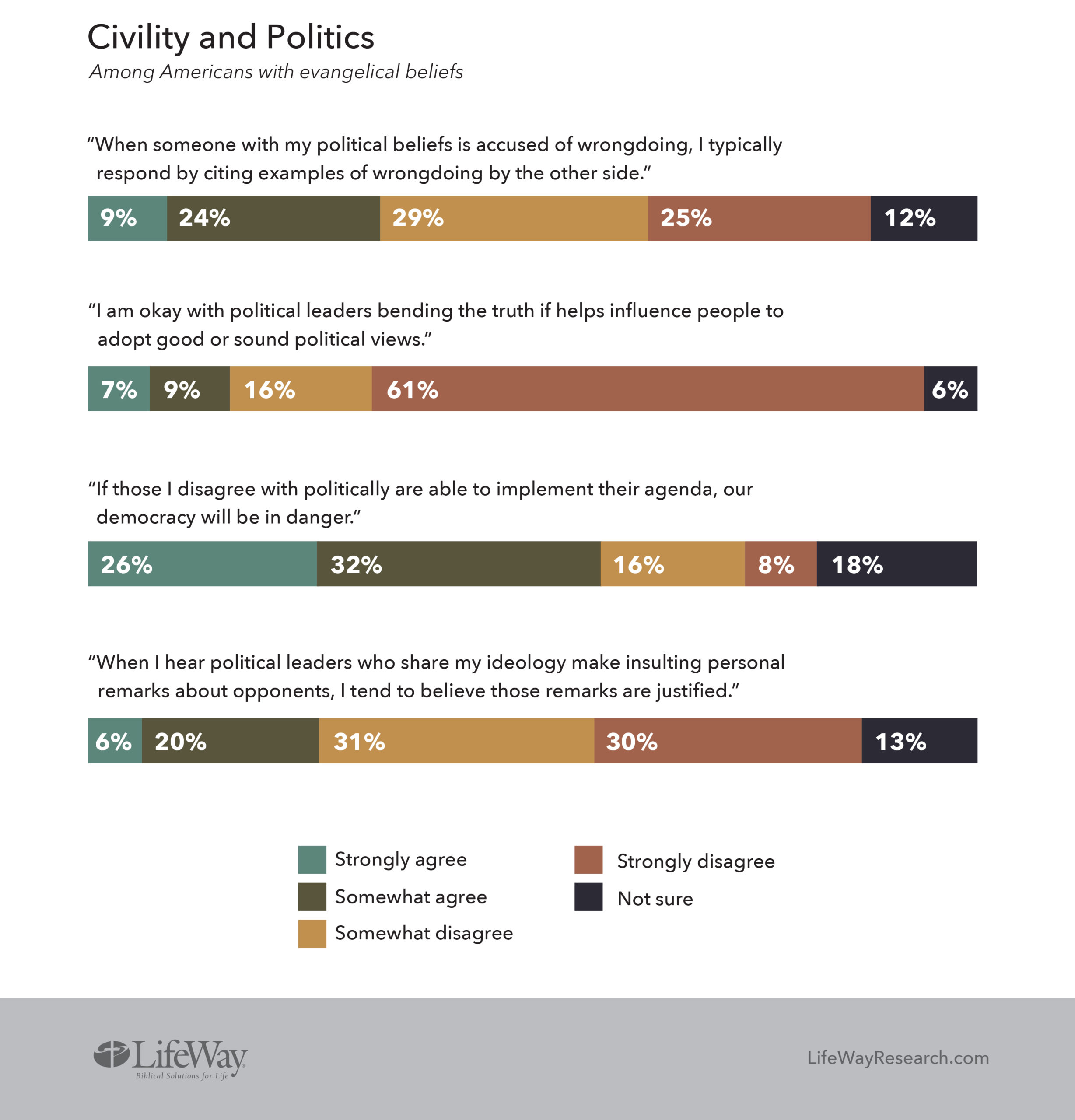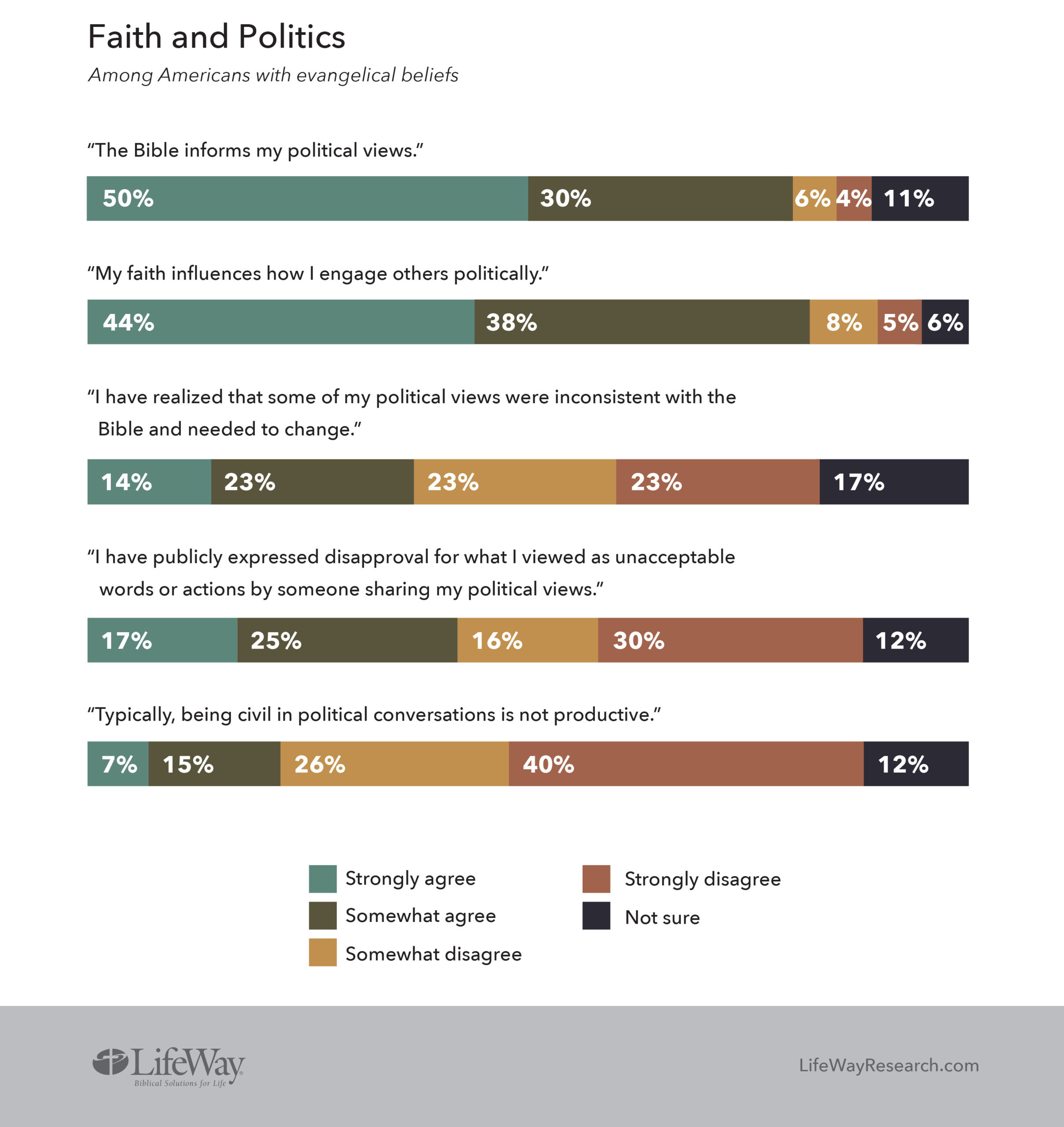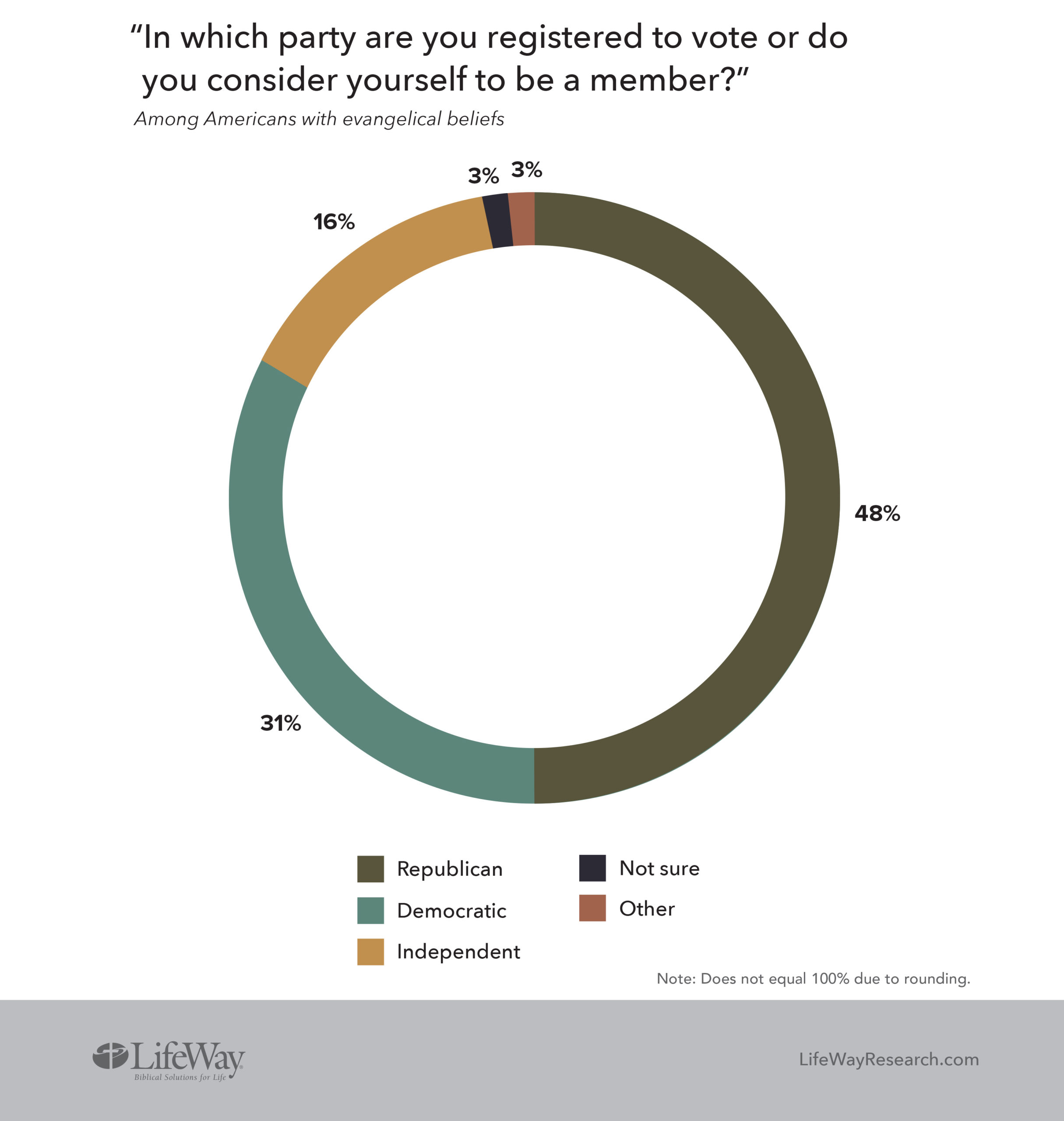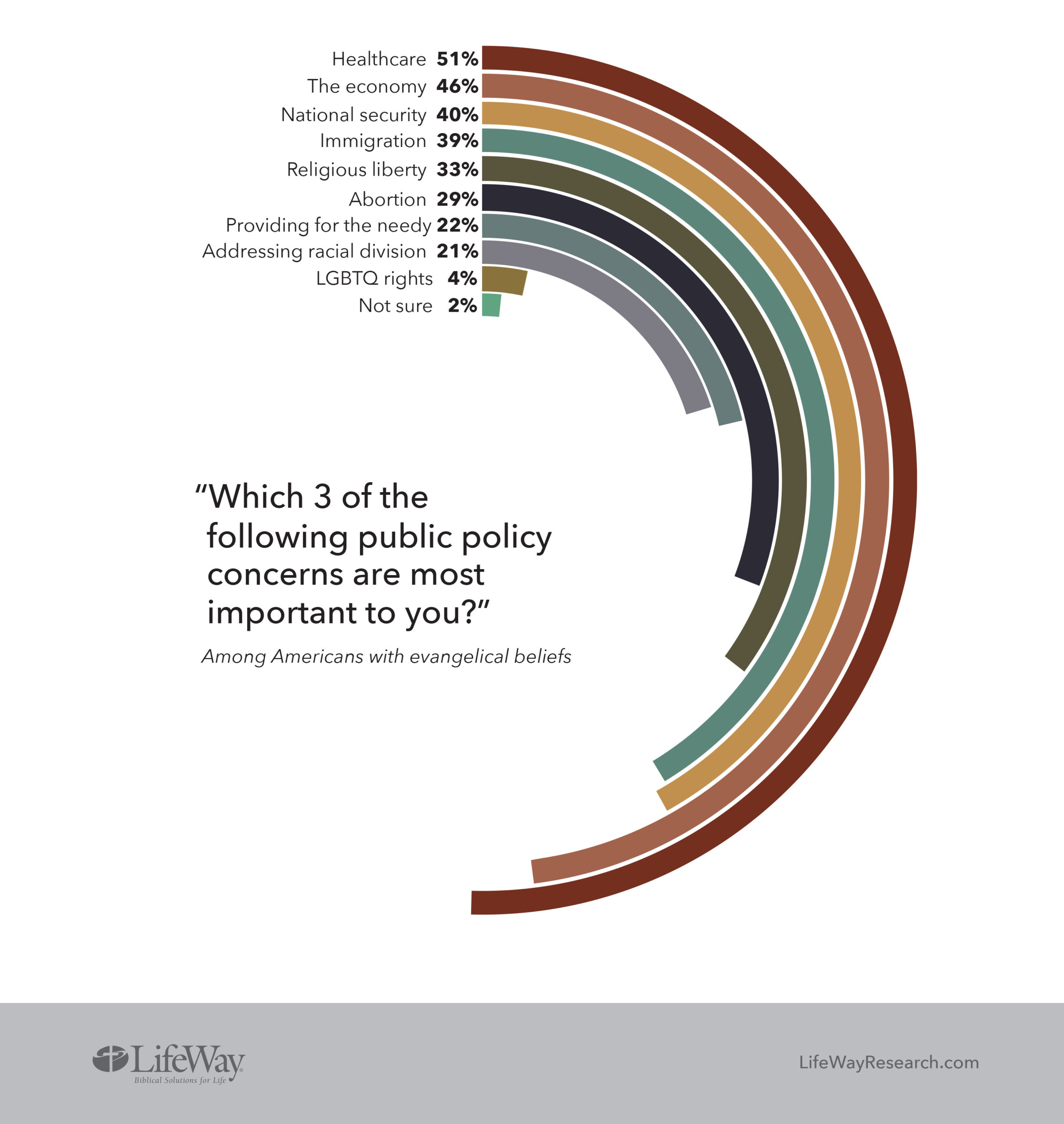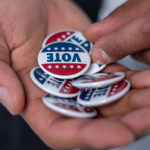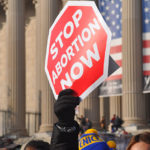Most American evangelicals believe Jesus’ Golden Rule—“Do unto others as you would have them do unto you”—applies to politics.
By Aaron Earls
Most American evangelicals believe Jesus’ Golden Rule—“Do unto others as you would have them do unto you”—applies to politics. Some, however, see the political realm leading up to the 2020 elections as no place for niceness, according to a new study.
A Lifeway Research study sponsored by the Ethics and Religious Liberty Commission of the Southern Baptist Convention (ERLC) explored the perspectives of American evangelicals on civility, politics, media consumption and how likely they are to engage with views different from their own.
“The results of this polling project were occasionally encouraging, frequently surprising and in some cases very much indicting,” said Russell Moore, president of the ERLC. “What this polling clearly shows is that there are forces driving the church apart from one another. That shouldn’t surprise us. But it should convict us.”
Most evangelicals value civility
Two in 3 Americans with evangelical beliefs (66%) believe being civil in political conversations is productive, with 22% dissenting and 12% not sure.
Around 8 in 10 (82%) say their faith influences how they engage others politically.
Many evangelicals by belief say they give others the benefit of the doubt but are frequently assumed to be attacking those with whom they disagree.
While 58% say they tend to believe those who disagree with them have good motivations, 54% say when they disagree with someone politically, the other person tends to take it as a personal attack.
Less than half (42%) say they have expressed public disapproval of political allies for using what respondents recognized as unacceptable words or actions.
A third (33%) admit that when someone with their political beliefs is accused of wrongdoing, they typically respond by citing examples of wrongdoing by the other side.
Around a quarter (26%) say they tend to believe insulting personal remarks made by political leaders who share their ideology toward opponents are justified.
Fewer (16%) say they are okay with political leaders bending the truth if it helps influence people to adopt what they consider good political views.
The tendency in some to embrace dishonesty and uncivil actions or at least leave them unchallenged may stem from evangelicals seeing their political opponents as dangerous.
Almost 3 in 5 evangelicals by belief (58%) say that if those with whom they disagree politically are able to implement their agenda, “our democracy will be in danger.”
“Evangelicals, like many Americans, simplify politics to being more about sticking up for your party than finding the best solutions to our nation’s problems,” said Scott McConnell, executive director of Lifeway Research.
Political preferences in 2016 and beyond
Half of evangelicals by belief identify with the Republican party and a majority of those that voted in 2016 say they did so for Donald Trump.
Overall, 48% identify as a Republican, 31% as a Democrat and 21% as an independent or something else beyond the two major political parties.
In 2016, 78% of evangelicals by belief say they voted in the general election. Among those who cast a ballot, 62% say they cast it for Donald Trump, 31% for Hillary Clinton and 7% for another candidate.
Those percentages, however, vary significantly when examining church attendance, gender, race and age.
Voting Americans with evangelical beliefs who attend church at least once a week are more likely to say they cast their ballot for Trump (65%) than those who attend less frequently (55%).
White evangelicals by belief say they voted overwhelmingly for Trump (80%), while black evangelicals by belief were solidly behind Clinton (82%). Hispanic evangelical voters say they were more split—47% Clinton, 48% Trump.
Evangelical men more heavily favored Trump over Clinton (69% to 24%). Women still preferred Trump but by a smaller majority (57% to 37%).
When considering age, the older an evangelical is, the more likely they are to say they voted for Trump. Three-fourths of evangelicals by belief who are at least 65 years old backed Trump over Clinton (74% to 22%), while 18- to 34-year-old evangelicals were essentially split (47% for Trump, 49% for Clinton).
Similar generational divides happen when evaluating political party identification. The older an evangelical is, the more likely they are to identify as a Republican. Among evangelicals by belief 65 and older, Republicans outnumber Democrats 3-to-1 (60% Republicans, 20% Democrats, 20% neither). Among 18- to -34-year-olds, however, 37% say they are Democrats, 35% Republicans and 27% neither.
A 2017 Lifeway Research study found political disagreements played a role in many churchgoing teenagers dropping out of church as young adults.
“Evangelical pastors must recognize that political diversity frequently is present within churches,” said McConnell. “If civility across these differences is not actively fostered, it can hurt the mission of the church. This has already been evident as many young adults point to political differences as a reason they stop attending church.”
When asked which three public policy concerns are most important to them, evangelicals by belief today are more likely to choose issues like healthcare (51%), the economy (46%), national security (40%) or immigration (39%), than issues like religious liberty (33%), abortion (29%), providing for the needy (22%) or addressing racial division (21%).
Only half of evangelicals by belief (51%) say they will only support a candidate who wants to make abortion illegal, less than the percentage whose support is dependent on the candidate demonstrating personal integrity (85%), making fighting poverty a priority (71%), being a Christian (70%), making the individual’s life better (69%) or fighting racial injustice (67%).
Around 1 in 12 (8%) say they are single-issue voters, while 80% say their support for a candidate depends on several issues.
Regardless of their partisan issues or presidential vote, a majority of evangelicals want scriptural support for their political positions.
Four in 5 (80%) say the Bible informs their political views. Similar numbers (81%) say they look for biblical principles to apply in evaluating political issues.
Only 37%, however, say they have ever recognized a need to change some of their political opinions because they were in conflict with the Bible.
Most say prominent Christian leaders have influenced their political views (58%). Similarly, 57% of evangelicals by belief who attend church at least monthly say the teachings of their local church have had an impact on their political ideology.
“When it comes to politics, the Bible is not a single-issue book. Scripture addresses all of life’s issues from God’s perspective,” said McConnell. “Evangelicals are wrestling with how to best apply those biblical principles to the often messy world of politics.”
Echo chamber for news, but not relationships
Most evangelicals by belief say they have friendships beyond their demographic circle, but when it comes to the source of their news, they’d prefer it be someone with whom they agree.
Almost 3 in 5 (58%) say they have someone they consider a close friend who has very different political views. Most (54%) say the same about someone with a very different household income. Almost half have a close friend with a very different level of formal education (49%), from a different ethnicity (48%) or with very different religious beliefs (46%).
Still, around half (53%) say they trust news more if it is delivered by people who have similar thoughts on social and political issues.
Evangelicals by belief primarily get their news from television (74%), which far outpaces websites (44%), social media (38%), radio (33%), print newspapers or magazines (27%), YouTube (19%) or blogs (7%).
When getting their news from television, evangelicals are most often watching local news (59%) or Fox News (47%). Four in 10 say they regularly watch NBC (40%) or CBS (38%) to get their news. A quarter turn to CNN (27%). Few say they watch MSNBC (13%) or CNBC (8%).
Similarly, when they are consuming news online, evangelicals by belief turn to Fox News (40%) and local TV news sites (32%). Around a quarter go to websites for CNN (25%), Google News (25%), Yahoo News (24%), ABC News (23%) or NBC News (20%).
Fewer turn to the websites of major newspapers like Washington Post (16%), New York Times (15%), USA Today (13%) or Wall Street Journal (9%), or international outlets like BBC (10%). Exclusively digital news sources like Huffington Post (13%), Buzzfeed (10%), Drudge Report (7%), Breitbart (5%) and The Blaze (4%) also garner few evangelicals by belief.
When it comes to social media, Facebook and YouTube are the dominant platforms among evangelicals by belief.
Around 3 in 4 use Facebook at least every few weeks (77%), with half (49%) using it several times a day. Seven in 10 are regular users of YouTube (70%), with a quarter on the streaming video site several times a day (24%).
Far fewer regularly use Instagram (34%), Pinterest (32%), Twitter (26%), LinkedIn (19%) or Snapchat (19%).
Among those who are on social media, close to half of evangelicals by belief (48%) say they prefer to follow people who have similar social and political views, while 37% disagree.
Despite turning to TV and social media for news most often, most evangelicals say those two sources are harming public discourse.
Around 3 in 5 (62%) say social media has a negative impact on the respectfulness of public debates. Half say the same about television (52%), websites (51%) and blogs (51%). Fewer place the blame on newspapers and magazines (40%) or radio (37%).
“You can’t practice demonstrating civility by dialoging only with those who share your views,” said McConnell. “The respect needed for civility can start with valuing and engaging people who don’t share your views.”
Moore said he hopes the project will be an impetus to unify Christians and help them to better love one another and stand together.
“Biblical courage means being willing to stand alone, against a crowd,” he said. “But biblical unity means those who are in Christ should never be forced to stand alone or against those who also bear the name of Christ.”

Methodology:
The online survey of 1,317 evangelicals was conducted November 14 –23, 2018. The study was sponsored by the Ethics & Religious Liberty Commission with funding from the Fetzer Institute. Respondents were screened to include those with evangelical beliefs and Protestant/nondenominational Christians who self-identify as evangelical. Quotas and slight weights were used for each group to balance gender, age, region, ethnicity and education. The completed sample is 1,317 surveys, including 933 with evangelical beliefs and 1,101 self-identified evangelicals. The sample provides 95% confidence that the sampling error from the panel does not exceed plus or minus 3.6% for those with evangelical beliefs and plus or minus 3.2% for self-identified evangelicals. Margins of error are higher in sub-groups.
Evangelical by belief are defined using the National Association of Evangelicals and Lifeway Research Evangelical Beliefs Research Definition. To be classified as an evangelical by belief, respondents must strongly agree: the Bible is the highest authority for what I believe, it is very important for me personally to encourage non-Christians to trust Jesus Christ as their Savior, Jesus Christ’s death on the cross is the only sacrifice that could remove the penalty of my sin, and only those who trust in Jesus Christ alone as their Savior receive God’s free gift of eternal salvation.
Download the research
Download the analysis
ERLC Faith and Healthy Democracy

